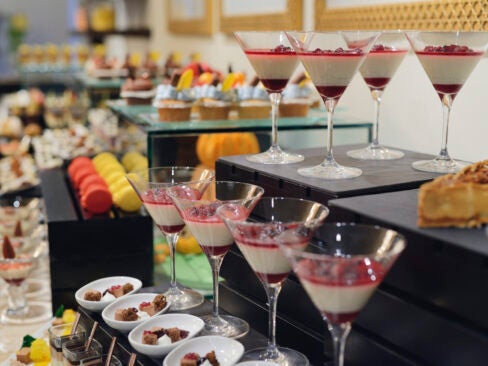By Doug Gollan
If you want to build an airline in today’s challenging environment, start with a white piece of paper. At least that is the formula that worked for Etihad Airways, according to James Hogan, CEO of the Abu Dhabi-based carrier.
Speaking while playing host to the World Travel & Tourism Council Global Summit, Hogan drew plenty of flattery from fellow speaker Willie Walsh, British Airways’ Chief Executive.
Hogan noted legacy airlines like BA face a changing playing field and saddled with inflexible contracts rooted more than 60 years ago as well as facing home governments that levy heavy taxes on air travelers and haven’t expanded airport and air space capacity to meet demands.
A quick overview of its first 10 years shows Etihad currently flies 70 aircraft, with an average age of less than 5 years, to 86 direct destinations with 90 more on order. It carries 10 million passengers, or “guests” as Hogan says, on an annual basis. There are 14,500 employees from over 120 countries and additional code sharing and minority investments in partner airlines means that Etihad guests have access to some 385 airplanes serving over 400 destinations. In fact, 12 percent of Etihad passengers and nearly 20 percent of revenue come because of these partnerships. Minority ownership in Air Berlin, Air Seychelles, Virgin Australia and Aer Lingus has also meant efficiency through joint purchasing.
While Etihad may benefit from the central location of its hub between Asia, CIS, Europe, Africa and Australia/New Zealand travel flows, Hogan said the brief he was given for his blank sheet of paper was to “be safe, be best in class, make money and support the aspirations of the state” to diversify its interest beyond oil, growing tourism.
Etihad has quickly built up shelves of awards for service, and Hogan has been particularly focused on premium cabins with Suites in First Class, onboard chefs and fully flat beds in Business Class.
Hogan, during an exclusive interview, told Elite Traveler that when his airline takes delivery of its A380s and Boeing 787s towards the back end of 2014 that its premium cabins will be making news with new standards.
Aubrey Tiedt, Vice President of Guest Services is charged with achieving “best in class objectives.” “Making a guest feel like an individual” is the key, she told us. A veteran of both leading airlines and the private jet industry, she prefers to benchmark Etihad cabin crews by hotel standards and is even contemplating coming up with another name for flight attendants. The airline employs over 100 trained in-flight chefs. Ten who have worked in Michelin-star restaurants. The airline’s mix-and-match/when-you-want menu in First Class has meant chefs will do anything a passenger requests, including in one case creating a 10-course blind tasting menu, each paired with a different wine. “The chef had to use everything in First Class, Business Class and Economy to come up with enough varieties as to offer a different wine for each course.” Tiedt told us.
It’s not unusual to find a couple in economy class on their honeymoon or somebody celebrating their birthday, and Tiedt says chefs, when they hear about this, will often swing into action and create a surprise desert.
Etihad is also stepping up its game on the ground according to Hogan. A new lounge has just opened at Washington Dulles Airport that offers direct boarding from lounge to plane. The duplex facility has a full dining room and an upstairs area that can be reserved for VIPs. In addition to its two lounges in Abu Dhabi, the carrier has lounges in Dublin, Frankfurt, London (Heathrow), Manchester and Paris (Charles de Gaulle). Etihad exclusive premium lounges are planned for Sydney later this year, and for New York and Melbourne in 2014. Partner and other lounges are offered across the rest of Etihad’s global network.








